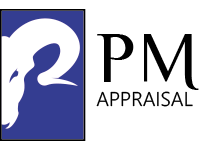Appraising Residential Land
Evaluating distinct property types such as manufacturing facilities and residential land properties entails a unique set of challenges due to their differing uses, specific attributes, and respective market dynamics. Here, we delve into these specific challenges:
Manufacturing facilities are designed for industrial use, whereas residential land serves as the foundation for housing developments. The stark differences between these two make finding comparable sales data a complex task, requiring a comprehensive understanding of both the industrial and residential real estate markets.
Much of a manufacturing facility’s value is tied to the specialized machinery and equipment it contains. Estimating the value of this equipment and understanding its contribution to the overall property value requires particular expertise and knowledge.
Both manufacturing facilities and residential land properties are subject to broader economic conditions and industry-specific trends. Factors such as fluctuations in manufacturing demand, changes in the housing market, and shifting land-use regulations can significantly impact these properties’ values.
The value of residential land largely depends on its physical characteristics, including size, topography, and accessibility. Additionally, the zoning classification – which determines what can be built on the land – greatly influences its value. Appraisers must understand how these factors affect residential land value within the specific market.
Environmental factors like soil composition, flood risk, and potential contamination can significantly impact the value of residential land and need to be carefully evaluated during the appraisal process.
For residential land, the potential for future development plays a key role in determining its value. This involves evaluating factors such as local housing demand, market trends, and the availability of public utilities and infrastructure.
In conclusion, appraising manufacturing facilities and residential land properties requires a detailed understanding of industry-specific factors, market conditions, and property-specific characteristics. However, with an experienced appraisal team, PM Appraisal these challenges can be effectively navigated to provide precise and reliable property valuations.
